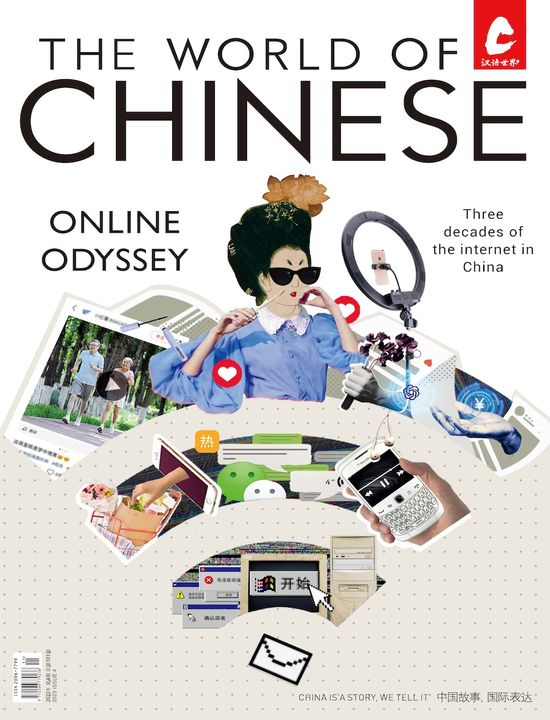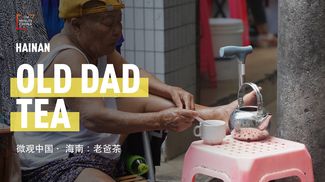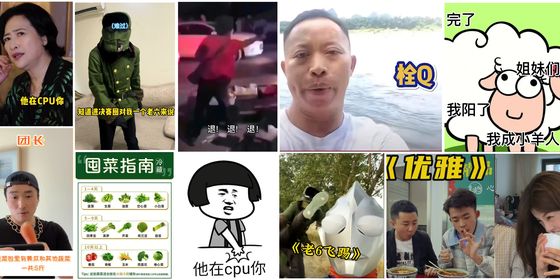How do you share four cups of water between five leaders? And other interview questions from the Chinese internet.
Some queries deserve a straightforward answer; some are social minefields: When it comes to questions asked in Chinese workplaces, netizens clearly think the latter is the norm.
A new meme on Chinese social media, dubbed “high EQ answers (高情商回答 gāo qíngshāng huídá),” supposedly exposes the trickery and social finesse required to navigate workplace relations in China. Especially popular on social commerce platform Xiaohongshu, the meme consists of asking a range of complex brain-teasers and social challenges that prompt witty answers from netizens.
Some of the questions are said to be based on real-life situations. Most, however, sound like they are fabricated by people seeking unusual or humorous answers; or, in their own words, to “hone their scheming and trickery skills (练习心眼子 liànxí xīnyǎnzi).” Quite a number of these puzzles supposedly come from interview questions at large corporations, among which is the ever-popular “How to divide four cups of water among five leaders (四杯水怎么分给五个领导 Sì bēi shuǐ zěnme fēngěi wǔ gè lǐngdǎo)?”
Netizens, who are for the most part ordinary workers struggling with the complex hierarchy between themselves and their superiors, provided answers that often reflect how they feel about their own position in their workplace. Some netizens went the “insignificance, helplessness, and powerlessness (弱小可怜且无助 ruòxiǎo kělián qiě wúzhù)” route, answering: “Give the four cups of water to the lowest-level leader and let them distribute it to the other four (把四杯水给了最小的领导,让他给其他四个大领导 Bǎ sì bēi shuǐ gěile zuì xiǎo de lǐngdǎo, ràng tā gěi qítā sì gè dà lǐngdǎo).”
Another answer gives a sneakier take: “Place one cup between every two leaders and turn your dilemma into theirs (两人间放一杯,把你的问题变成他们的问题 Liǎng rén jiān fàng yì bēi, bǎ nǐ de wèntí biànchéng tāmen de wèntí).”
Some are livid that any hypothetical company would put them in this situation: “What kind of company can’t even afford an extra cup (什么公司只有四个杯子,多一个都没有 Shénme gōngsī zhǐ yǒu sì gè bēizi, duō yí gè dōu méiyǒu)?” Others responded more seriously: “Any company that could come up with such an interview question is not a good one. Run away quickly. (能出这种面试题的就不是啥正经公司,快逃。Néng chū zhè zhǒng miànshìtí de jiù bú shì shá zhèngjīng gōngsī, kuài táo.)”
Other netizens turned the question into a joke, to give a mathematical solution. “It’s simple: divide the five leaders into four equal parts, and let each 1.25 leader drink 1 cup of water (很简单,把5个领导平均分成四份,每1.25个领导喝一杯 Hěn jiǎndān, bǎ wǔ gè lǐngdǎo píngjūn fēnchéng sì fèn, měi yì diǎn èr wǔ gè lǐngdǎo hē yì bēi).”
However, most of the comments seem to reflect netizens’ hopeless rage at the ludicrous demands they actually face at work. Unable to achieve “workplace rectification (整顿职场 zhěngdùn zhíchǎng)” in real life, they gather online, engaging in banter and giving lip service to satisfy their itch (打嘴炮,过把瘾 dǎ zuǐpào, guò bǎ yǐn): “Pour the water on each one of the first four leaders’ faces, and tell the fifth one: ‘You are lucky this time’ (一人泼一杯,告诉第五个领导:这次算你走运 Yì rén pō yì bēi, gàosù dì wǔ gè lǐngdǎo: Zhè cì suàn nǐ zǒuyùn).”
Some answers to these questions reveal the culture in many Chinese workplaces. One question goes: “The interviewer asked, how do you bring back a cup of milk poured into the ocean? What should I answer? (面试官问,一杯牛奶倒入大海,怎么拿回来?该怎么回答?Miànshìguān wèn, yì bēi niúnǎi dàorù dàhǎi, zěnme ná huílái? Gāi zěnme huídá?)”
Some comments suggest using flattery: “The company is the ocean, and I am the cup of milk. Once I am in, I will never think of leaving. (公司就是那片大海,我就是那杯牛奶,进来了我就没想过离开。Gōngsī jiù shì nà piàn dàhǎi, wǒ jiù shì nà bēi niúnǎi, jìnláile wǒ jiù méi xiǎngguò líkāi.)”
In another post, a netizen writes: “During a dinner, the leader said: ‘Li, the dishes you ordered today are great.’ How would you reply? (聚餐时领导说:小李,你今天点的菜不错哦,怎么回复?Jùcān shí lǐngdǎo shuō: Xiǎo Lǐ, nǐ jīntiān diǎn de cài bùcuò o, zěnme huífù?)”
Once again, some netizens offered flattery: “It is the place you chose that was great. I just ordered at random. Please invite me for more meals in the future. (领导地方选的好,我就是随便点点。以后吃饭还带我哦。Lǐngdǎo dìfāng xuǎn de hǎo, wǒ jiù shì suíbiàn diǎndian. Yǐhòu chīfàn hái dài wǒ o.)”
Some, however, are more passive-aggressive, “Boss, you can rest assured when it comes to ordering. They are all dishes that I love. (老板,我点菜您就放心吧,都是我爱吃的 Lǎobǎn, wǒ diǎncài nín jiù fàngxīn ba, dōu shì wǒ àichī de).” Others offered insults, though they’re probably just wishful thinking: “You are the leader in work, but I am a professional when it comes to feeding dogs (工作你是领头羊,喂狗我是专业户 Gōngzuò nǐ shì lǐngtóuyáng, wèigǒu wǒ shì zhuānyèhù).”
Similarly, under a post asking, “What to reply when the leader asks, ‘Who do you think is more capable, Manager Wang or Manager Li?’ (当领导说:你觉得王总和李总谁能力更强,怎么回? Dāng lǐngdǎo shuō: Nǐ juéde Wáng zǒng hé Lǐ zǒng shéi nénglì gēng qiáng, zěnme huí?),” netizens replied: “They are all better than you. But don’t be angry, none of them are as good as me. (都比您强,不过您别生气,他们都不如我。Dōu bǐ nín qiáng, búguò nín bié shēngqì, tāmen dōu bùrú wǒ.)”
At the end of the day, though, these responses are mostly in good fun: Faced with an increasingly competitive job market, perhaps no netizens would actually dare to give these responses in real life. “I just like to see wage slaves yield to nothing (我就喜欢打工人油盐不进的样子 Wǒ jiù xǐhuan dǎgōngrén yóuyán bú jìn de yàngzi).”













